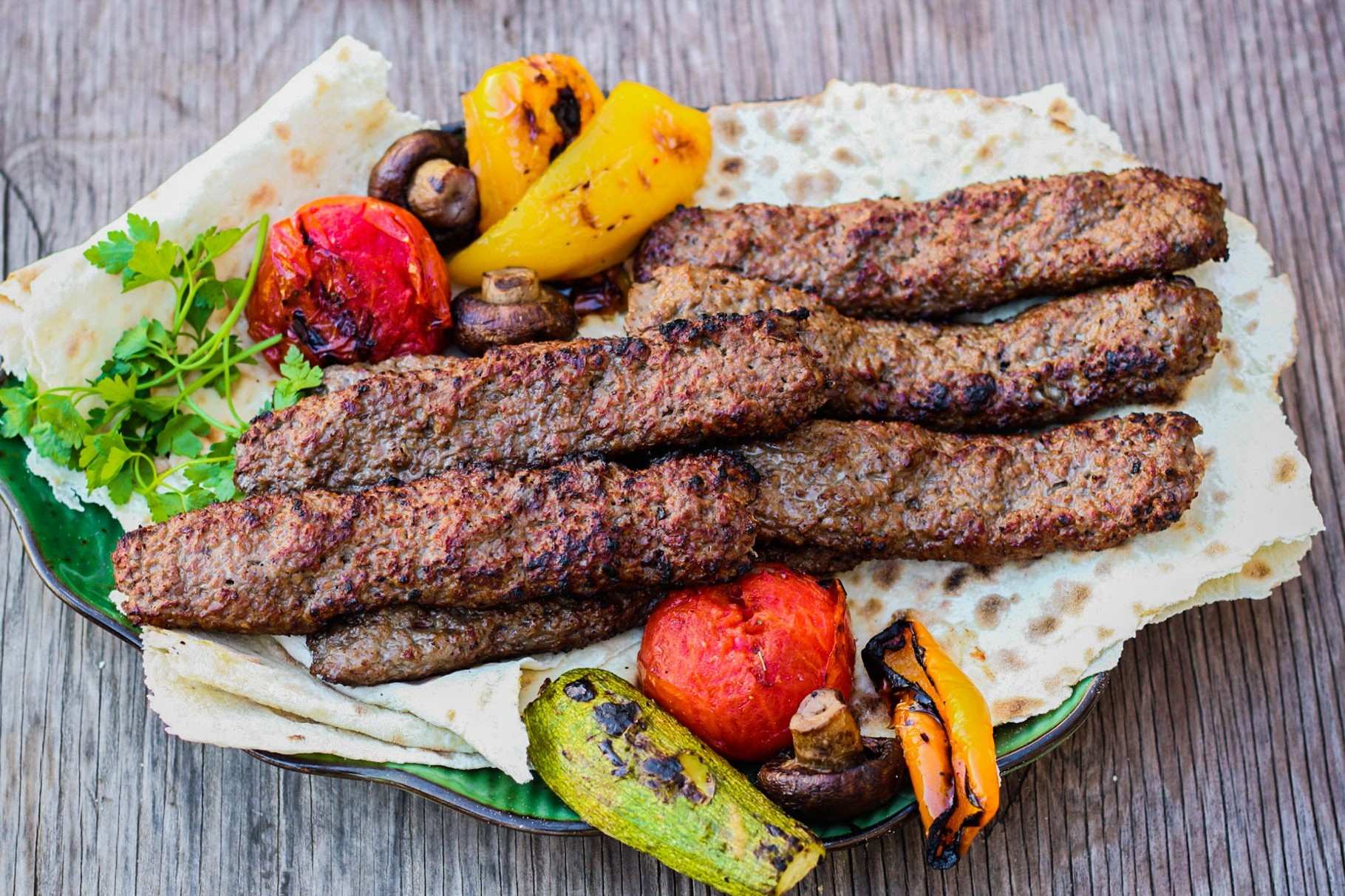
Kabobs are a delicious and versatile dish enjoyed worldwide. But what makes them so special? Kabobs are skewered and grilled pieces of meat, often accompanied by vegetables, originating from Middle Eastern cuisine. They offer a unique blend of flavors and textures, making them a favorite at barbecues and family gatherings. Whether you prefer beef, chicken, lamb, or even vegetarian options, there's a kabob for everyone. These tasty treats are not only easy to prepare but also fun to eat. Ready to learn more about this culinary delight? Here are 27 fascinating facts about kabobs that will make your mouth water!
The Origins of Kabobs
Kabobs, also known as kebabs, have a rich history that spans across continents and centuries. Let's dive into some fascinating facts about this beloved dish.
-
Ancient Beginnings: Kabobs date back to ancient times, with evidence suggesting they were enjoyed as early as the 14th century BC in Persia.
-
Persian Influence: The word "kebab" comes from the Persian word "kabāb," meaning grilled meat.
-
Nomadic Roots: Nomadic tribes in the Middle East and Central Asia popularized kabobs, cooking meat over open flames during their travels.
-
Cultural Spread: Kabobs spread through the Ottoman Empire, influencing cuisines in Turkey, Greece, and the Balkans.
-
Indian Twist: India adopted kabobs during the Mughal era, adding spices and herbs to create unique flavors.
Types of Kabobs
Kabobs come in various forms, each with its own unique preparation and ingredients. Here are some popular types you might encounter.
-
Shish Kabob: Originating from Turkey, shish kabobs consist of skewered and grilled meat, often accompanied by vegetables.
-
Seekh Kabob: Common in South Asia, seekh kabobs are made from minced meat mixed with spices, shaped onto skewers, and grilled.
-
Doner Kabob: A Turkish favorite, doner kabobs feature meat cooked on a vertical rotisserie, often served in pita bread.
-
Satay: Indonesian and Malaysian cuisines offer satay, skewered and grilled meat served with a peanut sauce.
-
Yakitori: In Japan, yakitori refers to skewered and grilled chicken, often seasoned with tare sauce.
Ingredients and Preparation
The ingredients and preparation methods for kabobs vary widely, reflecting the diversity of this dish.
-
Meat Variety: Kabobs can be made from various meats, including lamb, beef, chicken, and fish.
-
Vegetarian Options: Vegetarian kabobs feature ingredients like paneer, tofu, mushrooms, and assorted vegetables.
-
Marination: Marinating the meat is crucial for flavor. Common marinades include yogurt, lemon juice, garlic, and spices.
-
Skewers: Traditional kabobs use metal or wooden skewers, but modern variations may use bamboo or even rosemary sprigs.
-
Grilling Techniques: Kabobs are typically grilled over charcoal or an open flame, imparting a smoky flavor.
Kabobs Around the World
Different regions have their own unique takes on kabobs, showcasing the dish's versatility.
-
Middle Eastern Kabobs: In the Middle East, kabobs are often served with rice, flatbread, and a variety of dips like hummus and tzatziki.
-
Greek Souvlaki: Greece offers souvlaki, skewered and grilled meat served with pita, tomatoes, and tzatziki sauce.
-
Brazilian Churrasco: Brazilian churrasco features skewered meats cooked on large rotisseries, often served with chimichurri sauce.
-
Korean Bulgogi: Korea's bulgogi involves marinated and grilled beef, often served with lettuce wraps and kimchi.
-
American BBQ Kabobs: In the United States, kabobs are a popular BBQ item, featuring a mix of meat and vegetables on skewers.
Fun Facts About Kabobs
Kabobs have some interesting tidbits that might surprise you.
-
World Record: The longest kabob ever made measured over 7,000 feet and was created in Iran in 2008.
-
Health Benefits: Kabobs can be a healthy meal option, especially when made with lean meats and plenty of vegetables.
-
Street Food: In many countries, kabobs are a popular street food, offering a quick and tasty meal on the go.
-
Cultural Symbol: In some cultures, kabobs symbolize hospitality and are often served at special occasions and celebrations.
-
Cooking Methods: Besides grilling, kabobs can also be baked, broiled, or cooked on a stovetop grill pan.
-
Fusion Cuisine: Modern chefs often create fusion kabobs, blending flavors from different cuisines to create unique dishes.
-
DIY Kabobs: Making kabobs at home is a fun and interactive way to enjoy a meal, allowing for endless customization with ingredients and flavors.
Kabobs: A Flavorful Journey
Kabobs offer a rich tapestry of flavors and traditions. From their ancient origins in the Middle East to their global popularity today, these skewered delights have won hearts worldwide. Whether you prefer grilled meats, vegetarian options, or seafood, there's a kabob for everyone. They’re not just tasty but also versatile, fitting into various cuisines and dietary preferences. Plus, they’re fun to make and eat, making them perfect for gatherings.
Understanding the history and variety of kabobs can deepen your appreciation for this beloved dish. Next time you fire up the grill or visit a kabob restaurant, you'll know a bit more about what makes these skewers so special. So, grab some skewers, gather your favorite ingredients, and enjoy the delicious world of kabobs. Happy grilling!
Was this page helpful?
Our commitment to delivering trustworthy and engaging content is at the heart of what we do. Each fact on our site is contributed by real users like you, bringing a wealth of diverse insights and information. To ensure the highest standards of accuracy and reliability, our dedicated editors meticulously review each submission. This process guarantees that the facts we share are not only fascinating but also credible. Trust in our commitment to quality and authenticity as you explore and learn with us.
